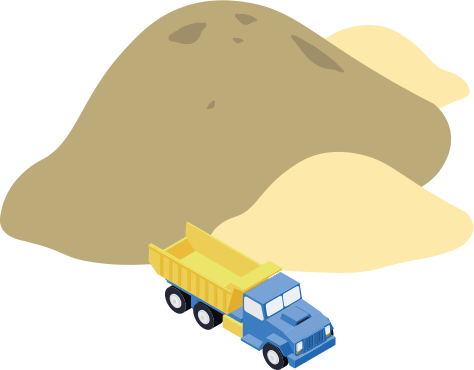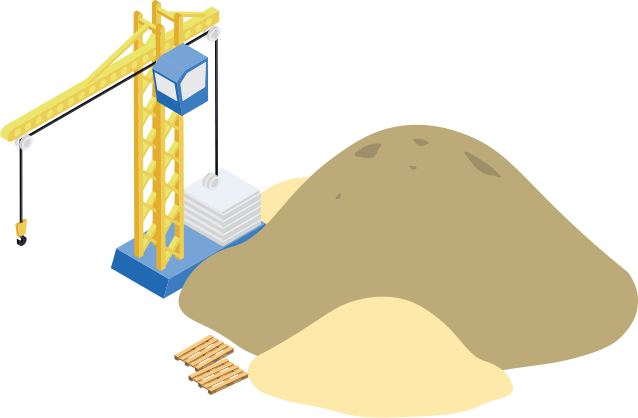You would think you own your website, right?
Many do not.
Equally important, people often don’t CONTROL their own website.
I don’t think I need to go into a lengthy explanation of why this is important. Just to mention a few possible consequences:
What if someone else can change your website and send business to your competitors? What if your website can disappear from the internet without warning and you can’t do anything about it? What if you can’t make changes to your website?
These are NOT just theoretical concerns. We get calls every week from people faced with one or more of these issues.
Listen up while I explain.
TRUST AND INCOMPETENCE
The average small business owner, in my experience, doesn’t have the time or desire to learn the ins and outs of the internet. It’s true, it can get quite technical. And you are busy. I don’t think anyone who isn’t a small business owner can appreciate just how busy the average small business owner is.
They want someone they can trust to take care of everything for them.
I’m sure many well-intentioned website developers take on this job for that very reason. It’s easier for everyone concerned.
And that would be great. But how do you know who you can trust? Many people talk a good game. Not everyone is so responsible or as competent as they claim to be. And things happen.
PREY
There’s another point.
If only the business world were civilized. This is a view of the world that doesn’t even vaguely approximate reality. The fact is, an enormous number of people view small business owners as prey.
Someone to take advantage of.
I’m sure you’ve experienced this. There’s a good chance you’ve experienced it in the world of the internet.
So you get many “website developers” who are rank amateurs or even con artists who will take their clients for every penny they can. This is often not a lot of money and may have no serious consequences until one of the above scenarios happen. Then it can be serious indeed.
If a criminal controls, or even owns your website, they can hold it hostage. Make you pay for the privilege of regaining control yourself, or even refuse to turn it over. Not the most common situation, but it happens.
So. What do you need to know, and what do you need to do, to avoid these pitfalls? Luckily, it’s not hard.
DOMAIN REGISTRATION
Let’s get down to nuts and bolts. There are two places where this can be a problem.
First is ownership / control of your domain, that is, your website address (URL). Domain names are regulated by an international organization called ICANN. It licenses companies to perform registration services. GoDaddy is the biggest and most famous such company. They are Domain Registrars, one of hundreds if not thousands of such.
When you register a domain, you are essentially renting that name, with the right to renew it forever. If you let it expire, someone else can register it. Then you are Out of Luck.
Essentially, registration does one thing: It gives you the right to tell the world, where on the internet to go for domain services such as website location or email. If you don’t have access to that domain registration account, you can’t move your website or email, but someone else can. And your registration can expire without you even knowing about it until it is too late to easily remedy.
A reputable website developer or Search Engine Company may assist you in selecting a domain, in registering it, and in ensuring it is set up properly to renew automatically each year. There is NO reason why someone other than yourself should own or control your domain. Yet this is common.
Some will handle all that for you, charge you $100 a year or so for doing 5 minutes work, and if you ever need or want to fire them, or move your website or email, you have to go to them. That’s when you can be in real trouble.
Things happen. We once had someone come to us for help. The guy who had been handling their websites was in jail. It took 8 hours work (that was billable time) just to find and get them access to their accounts. It took a couple of weeks to get it done. During that time, nothing could be done on or about the websites.
It’s fine for reputable vendors to have your logins so they can take care of things for you, and monitoring is highly recommended so you don’t suddenly find your registration expired or something weird happen. But if your name isn’t on the domain account as the owner of record, you don’t own your domain, and if your email address isn’t on the account, you don’t control it.
You can’t go to ICANN and say, but I paid them for it! And a lawsuit is a long and expensive road to travel. Better you should own and control it yourself.
COPYRIGHT NOTICE
Part Two. Let’s say you do own and control your domain. Do you own your website? The first place to look for an answer is on the website itself. Is there a copyright notice at the foot of the page, and whose name is there? Mandatory disclaimer, I Am Not A Lawyer.
If someone else’s name is on the copyright notice, they own it. That becomes an issue if you want to change, move or sell it.
Many website companies specialize in certain industries. Often, they lease websites for a monthly fee. Lease, not sell. Usually, a lot of the content is created and provided by that company. You see this with Dentists, Chiropractors, Veterinarians and Lawyers.
They (the website company) may have a lot of content you can pick and choose from. You don’t own it and if you stop paying them monthly your website goes away. In those situations it is normal for them to put their copyright notice on “your” site.
OWNERSHIP VERSUS CONTROL
If there is no copyright notice on your site, or if it has your name on a copyright notice, presumably you own your site. Theoretically. There are quite a few scenarios where that is more theoretical than real – because you don’t CONTROL the site. You may not even be ABLE to take control of it. Here are a few of these scenarios.
- The company that built the website hosts it (puts it on a computer that makes it available to the world online). You don’t have any of the logins for the site. That means you can’t change it, move it, or sell it without going through them.
If you seek to gain control, an ethical company will cooperate. But they can be slow. And it isn’t common, but it isn’t totally rare for them not to cooperate. Then the fact that you really do own the website is not very helpful.
- No one knows where the website is hosted, and you have no, or limited logins. It can be an interesting exercise to get full control in a situation like that. There’s no guaranteed way to find out how to get control, and the process can be complex, lengthy or even impossible.
- Your website is built on a proprietary or rare platform. If your website is built on WordPress, the most widely used website platform in the world, lucky you. Tens of thousands of companies can host your website and hundreds of thousands of people can work on it.
But what if your website is built using unique software created by the company that built your site? You cannot move your site away from them without rebuilding it from the ground up. Theoretically you may own it. That may mean next to nothing. As in that, and $1.87, will buy you a cup of coffee.
I’M NOT TRYING TO SCARE YOU
Really, I’m not. But you don’t have to be a scaredy cat to know you should lock your front door. Some basic due diligence is required here. A few simple do’s and don’ts handles the whole subject:
- Have your domains registered in your name, with your email address, in a domain registration account that you control the login for.
- Have your website built on a widely used platform.
- Make sure you actually do own your own website.
- Make sure you have ALL logins for your website (there can be several – hosting account, control panel and back end admin can all exist and be different).
- Make sure only people you trust have your logins.
- And last but not least, make sure your website is regularly backed up and that YOU have access to the backups in case something does happen.
Then you can sleep at night.









